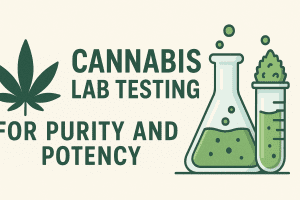The idea of cannabis as more than just a recreational substance has gained serious traction in recent years. As laws evolve and research expands, many people are turning to cannabis for its therapeutic potential. But what exactly are the medicinal uses of cannabis, and how effective is it as a natural remedy?
Let’s take a closer look at what the science and patient experiences have to say.
Understanding Medicinal Cannabis
Medicinal cannabis refers to the use of the cannabis plant or its extracts to treat symptoms or manage medical conditions. The two most studied compounds in cannabis are THC (tetrahydrocannabinol) and CBD (cannabidiol). THC is known for its psychoactive effects, while CBD offers therapeutic properties without making users feel “high.”
Cannabis therapy can involve different product types, including oils, capsules, dried flowers for inhalation, and edibles — all tailored to the patient’s needs and the condition being treated.
Common Medical Uses of Cannabis
While cannabis is not a universal cure-all, evidence suggests it may provide relief for a range of symptoms and conditions:
Chronic Pain
One of the most well-established uses of medical cannabis is in chronic pain management. It may help reduce inflammation and influence the brain’s pain perception pathways. It’s often considered by patients with arthritis, fibromyalgia, back pain, or nerve-related conditions.
Nausea and Appetite Loss
Cannabis has long been used to treat nausea and vomiting, particularly in cancer patients undergoing chemotherapy. It may also stimulate appetite in people with HIV/AIDS or other conditions causing severe weight loss.
Anxiety and PTSD
Low to moderate doses of certain cannabis strains may help reduce anxiety symptoms, especially those dominated by CBD. In some cases, it has shown promise in easing post-traumatic stress disorder (PTSD) symptoms by improving sleep and reducing intrusive thoughts.
Epilepsy and Seizures
CBD-based treatments have been found effective in managing certain types of epilepsy, particularly in children with drug-resistant syndromes. This is one of the most studied and medically accepted uses of cannabis.
Multiple Sclerosis (MS) and Spasticity
Medical cannabis may reduce muscle spasms and stiffness associated with MS. Some studies suggest it can improve mobility and overall quality of life in people living with neurological disorders.
Sleep Disorders
Cannabis may support better sleep by helping people fall asleep faster and stay asleep longer, particularly when insomnia is linked to pain, anxiety, or PTSD.
How Effective Is Cannabis as a Natural Treatment?
Effectiveness can vary widely depending on:
-
The condition being treated
-
The cannabinoid profile (ratio of THC to CBD)
-
Method of consumption
-
Individual body chemistry
For some, cannabis provides noticeable relief where conventional treatments fall short. For others, effects may be mild or inconsistent. Importantly, cannabis often functions best as part of a complementary approach, not necessarily a standalone solution.
It’s also worth noting that the placebo effect can play a role in how people perceive symptom relief — though clinical trials have confirmed real biochemical interactions between cannabinoids and the body’s systems.
Responsible Use and Medical Oversight
Cannabis is not without risks. Side effects like drowsiness, dry mouth, or dizziness can occur, especially with high-THC products. In some cases, cannabis may interact with other medications, so it’s important to consult with a healthcare professional before starting therapy.
Patients should also look for lab-tested, quality-controlled products, and understand local laws around medical cannabis use.
What’s Next for Cannabis in Medicine?
The therapeutic potential of cannabis is still being explored. As more clinical studies are conducted and access increases globally, we can expect to learn more about which cannabinoids work best for specific conditions, optimal dosing strategies, and long-term outcomes.
This is just the beginning of understanding how cannabis may fit into a broader approach to natural, personalized medicine.


